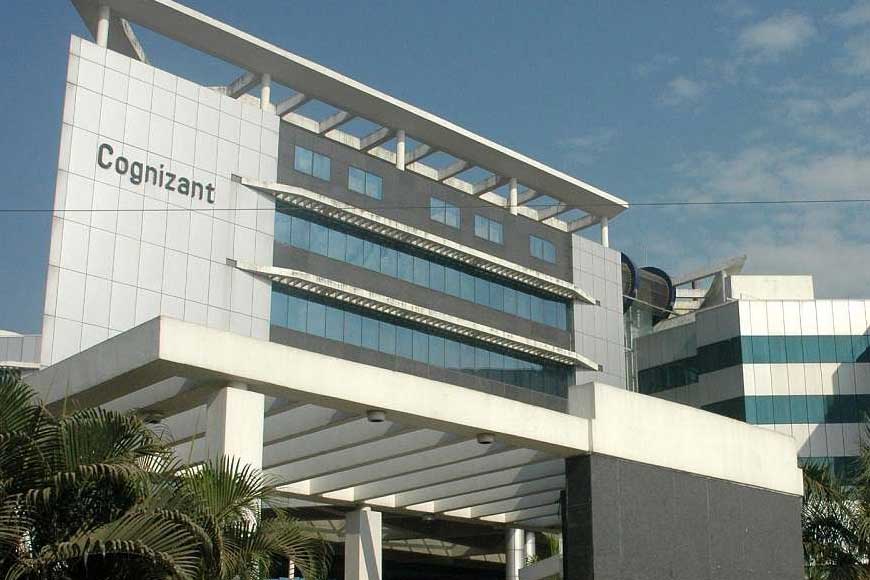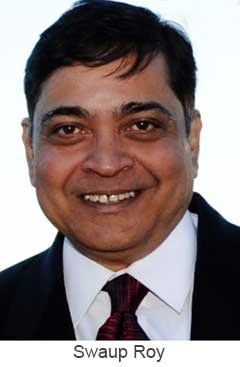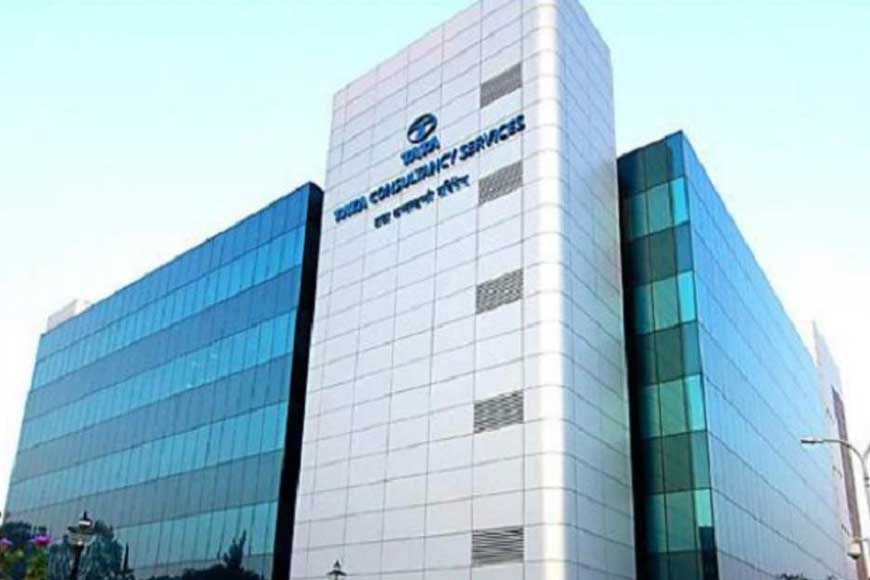Bengal to get 13,000 crore investments in IT: GB exclusive interview with IT Advisor

At the inaugural session of the 4th Bengal Global Business Summit in 2019, West Bengal Chief Minister Mamata Banerjee had announced that our state would soon be the new digital technology powerhouse of India. She had unveiled the state’s new IT policy with a focus on quantum computing, AI and big data analytics. Taking off from there, the state nodal body and e-Governance solutions provider, West Bengal Electronics Industry Development Corporation Limited (Webel) has been working in tandem with the state government to nurture and provide assistance to the Electronics and IT industry, which has seen a phenomenal growth in the last couple of years. The result of this joint effort is paying high dividends as leading IT big leaguers are heading towards West Bengal to establish state-of-the-art campuses here. An investment of more than Rs 13,000 crore is in the offing at Bengal Silicon Valley. The IT industry has arrived here with a bang! The state’s aggressive strategy to establish a firm base for the IT industry is finally being taken very seriously by multi-national IT players. It has not been a cakewalk though.
GB exclusively spoke to Mr Swarup Roy, Advisor at the Department of Information Technology and Electronics (DIT&E), Government of West Bengal, who has been a key figure in the growth of the IT industry in West Bengal from its nascent stage to adulthood and knows the industry inside out.
• Why did it take so long for West Bengal to develop IT infrastructure in the state as compared to cities like Bengaluru, Hyderabad and Gurugram?
Y es, it is true that we are lagging behind cities like Bengaluru and Hyderabad in terms of volume of business but that is because Bengaluru had ventured into the IT horizon much earlier. Way back in the 1980s, the then IT-bigwigs stepped in India and tiptoed their way to Bengaluru where the IT sector was emerging. At that time, we hardly knew about the prospects and possibilities of this sector. IT operations in Bengaluru got the thrust with the launch of two homegrown companies – Wipro and Infosys -- that gave the city an edge over other parts of the country. Other small vendors developed around these two companies. This was the time when Bengaluru was a peaceful laid-back city with a mild climate and vast tracts of land available at an affordable price. Areas like Whitefield, Brookfield which are now chock-a-block with IT offices, lay vacant during the 1990s. When investors from abroad chose India for making investments in the IT sector, they all zeroed in to set their centres in Bengaluru and operate from a single location. Foreign investors including Oracle and Microsoft set up their offices too.
es, it is true that we are lagging behind cities like Bengaluru and Hyderabad in terms of volume of business but that is because Bengaluru had ventured into the IT horizon much earlier. Way back in the 1980s, the then IT-bigwigs stepped in India and tiptoed their way to Bengaluru where the IT sector was emerging. At that time, we hardly knew about the prospects and possibilities of this sector. IT operations in Bengaluru got the thrust with the launch of two homegrown companies – Wipro and Infosys -- that gave the city an edge over other parts of the country. Other small vendors developed around these two companies. This was the time when Bengaluru was a peaceful laid-back city with a mild climate and vast tracts of land available at an affordable price. Areas like Whitefield, Brookfield which are now chock-a-block with IT offices, lay vacant during the 1990s. When investors from abroad chose India for making investments in the IT sector, they all zeroed in to set their centres in Bengaluru and operate from a single location. Foreign investors including Oracle and Microsoft set up their offices too.

• Why not Kolkata? It is often said Bhubaneswar is vying with Kolkata to be the next IT hub to cater to east and north-east. Companies like Infosys, TCS, Mindfire Solutions, Mahindra Satyam, Mindtree, Wipro have operations in Bhubaneswar. Why not in Bengal?
A: See there are certain prerequisites when setting up an industry, especially IT industry. The need for well-developed social infrastructure is essential for employees who work in these IT facilities. These include basic amenities like good housing facilities, educational institutions, entertainment, modern shopping complexes, multi-cuisine food options, state-of-the-art hospitals et al. Willingness of local people to work in Bhubaneswar is also vital. From our experience, we have seen that although many big players have opened their offices in Bhubaneswar, they have not been able to grow over the years. To run an IT company successfully, three prime infrastructure factors are very important – the place of work, uninterrupted power supply and bandwidth. When companies begin operations, they recruit people for different levels, right from senior to mid-level and freshers. The youngsters who pass out of colleges and are offered a job with a lucrative salary, jump the bandwagon. These new recruits, barely out of their teens, suddenly get access to a lot of surplus cash and need an outlet to spend the money but in Bhubaneswar, such outlets are still lacking.
Although Bengaluru is way ahead, at this point I can vouchsafe that West Bengal has grown phenomenally as an IT hub. A number of prestigious IT companies have started operations here. The year-long lockdown following the pandemic has restricted movement and this has hit the IT business as well.
Besides, opportunities in the IT sector in Bhubaneswar at this point is still developing and will take time to flourish. As a result, a large number of freshers, join different big-wig IT companies in Bhubaneswar because getting an opening in a reputed company is important for their career but as soon as they realize that their growth potential is limited, they look for greener pastures. The first best option for them is now Kolkata, a well-developed and flourishing metropolitan city with all amenities of modern living. If you look around, you will see more professionals from Odisha working in Kolkata IT hubs than from Bengal, a trend over last 10 years.
Bhubaneswar cannot match with the facilities available in Kolkata. Odisha has been trying to plug these gaping holes to lure investors with land at an affordable price. Unfortunately, in West Bengal we have acute scarcity of land and prices are also steep. But then one cannot set up an industry with land alone. There are many other essential components required to set up a well-oiled industry. In Kolkata, cost of operation is less and people are happy because there is a higher saving potential when working in Kolkata.
• What were initial stumbling blocks faced and how are you encouraging investors to launch operations in West Bengal?
A: We started late but we had a lot of possibilities. However, political interference delayed our response to the growing demand in the market. We were not prepared with the required infrastructure. Investors from abroad looked for built-up infrastructure that we were lacking in. Things started looking up from around 2003. We initiated our move by influencing and convincing landowners to sell or lease unused land and paid rent and acquired office space which were discarded and lay vacant to usher in IT investors. Between 2003 and 2007, we managed to get many big IT companies to open office in Kolkata. Initially, we had only about five or six IT companies operating in Kolkata including TCS, R.S Software, a homegrown company and Software Technology Parks of India (STPI).

Cognizant came to Kolkata and started office in 1996 with just four employees. And now, the company employs more than 20,000 people here. There is no scope for us to overcome the ground lost because most foreign investors come to India aiming to set up single location companies. Most international IT bigwigs including Oracle and Microsoft have already launched operations from Bengaluru and Hyderabad and there is no possibility of them setting up development centres in Kolkata. However, their representation in West Bengal is very much there in segments like sales and marketing, service office etc. We have big names like TCS, Capgemini, Accenture, Erickson, Cognizant and Wipro. Infosys has recently anchored its vessel in Kolkata and intends to start operations within the next year-and-a-half. We have already reached over 30,000 export turn over from Kolkata.
Recently, the Chairman of Wipro was in Kolkata, and said 60 per cent of Wipro’s workforce at Bengaluru are Bengalis. When Wipro started operations in Kolkata, the employees were given an option to join here. Soon enough, there was a queue of employees who wanted to relocate to Kolkata!
• What about companies like Amazon, Google and Facebook with offices in Bengaluru and Hyderabad. Is there any possibility of them opening outlets in Kolkata?
A: Amazon, Google and Facebook have already come. Amazon has invested in our Logistics Hub. The development centres are in Bengaluru and Hyderabad. When these companies come to India to invest they look for only a single location and since they have launched from Bengaluru and Hyderabad, there is no possibility of them coming to Kolkata for launching development centres. If later, they look at a second location, we come into the picture and can pitch for our state. We have already pitched for a number of foreign IT investors and have succeeded in convincing them to set up companies here. HSBC Data processing Centre handles the total volume of Southeast Asia’s back-office work at FinTech Hub.
Although Bengaluru is way ahead, at this point I can vouchsafe that West Bengal has grown phenomenally as an IT hub. A number of prestigious IT companies have started operations here. The year-long lockdown following the pandemic has restricted movement and this has hit the IT business as well. There were many companies that wanted to come to Kolkata and start their operations but had to defer their plans.
Between 2003 and 2007, we managed to get many big IT companies to open office in Kolkata. Initially, we had only about five or six IT companies operating in Kolkata including TCS, R.S Software, a homegrown company and Software Technology Parks of India (STPI).
• Will the kind of infrastructure and possibilities of growth that the state is offering now and the kind of facilities that the workers in the IT sector are availing when working in Kolkata be able to stop the brain-drain from Bengal?
A: No, brain-drain is part of the process and will continue. If you look at India and California’s Silicon Valley, you will see change is the most constant factor in this industry. Recently, the Chairman of Wipro was in Kolkata, and said 60 per cent of Wipro’s workforce at Bengaluru are Bengalis. When Wipro started operations in Kolkata, the employees were given an option to join here. Soon enough, there was a queue of employees who wanted to relocate to Kolkata! It happened at Infosys as well. Silicon Valley in California is also dominated by people from India and they are all doing extremely well professionally.

Constant movement is the way the IT sector works. Opportunities galore and employees wait to grab the right chance. Even during lockdown, when people have been working from home, many are changing jobs. Kolkata is doing buoyantly in the IT sector. Webel has already created over a dozen IT parks across Bengal that provide an advanced ecosystem for cutting-edge applications such as blockchain, data analytics and artificial intelligence (AI). Software Technology Park (STPI) and SEZs produce software exports and projects worth millions of dollars. As soon as normalcy resumes, we will witness a steady rise in IT investments and openings in the employment sector. We are looking at the prospect of a public-private joint initiative that can catapult the state to the top among all South Asian countries.










